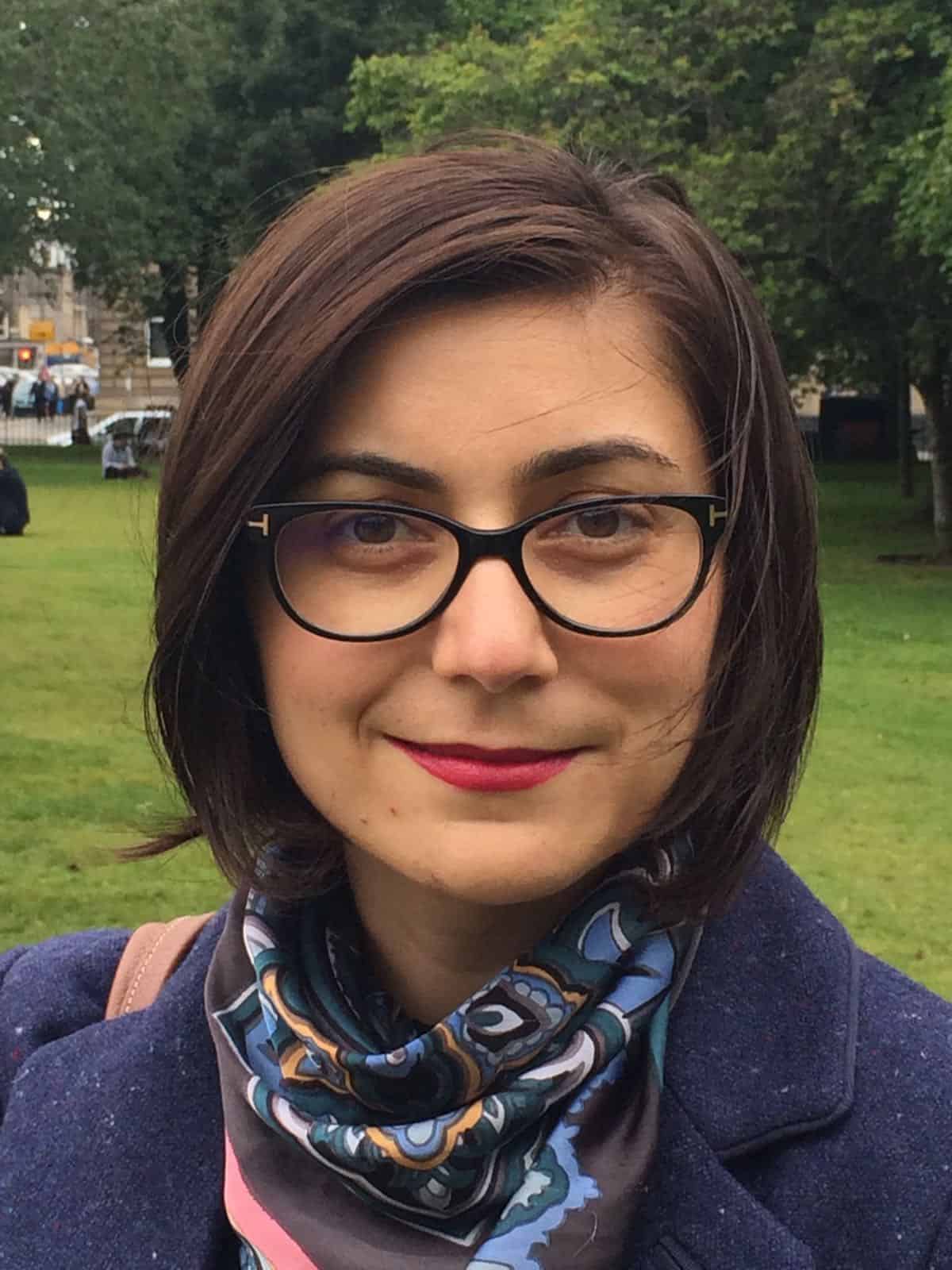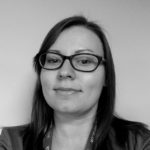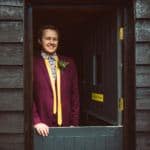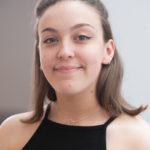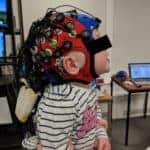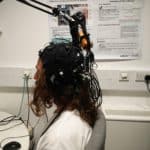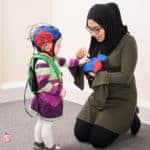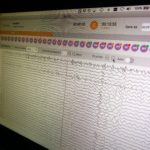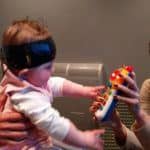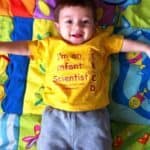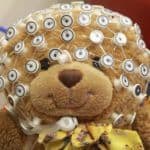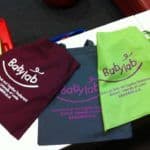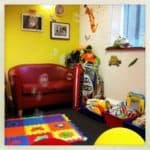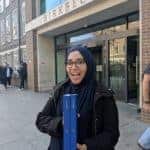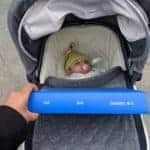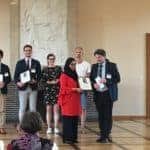Profile
Maheen Siddiqui
Learning so much each day of this competition!
-
About Me:
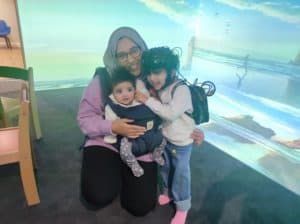
I live with my family in Milton Keynes, Buckinghamshire. By day, I study how babies’ brains develop and I spend my evenings running after my two little girls. I love exercising outdoors, traveling, and trying new types of food!
-
Read more
I was born in Ireland, grew up in the Middle East, spent a few years in Pakistan, and finally ended up in the UK in 2009. Though I’ve been here a long time now, my mixed accent, from having lived in so many different countries, always confuses people! But having lived in so many different places, I can proudly speak 5 different languages and know a lot about different cultures!
I’ve always enjoyed reading, doing puzzles, and baking but since becoming a mum 4 years ago, I don’t get much time for any of those things anymore.
-
My pronouns are:
She/her
-
My Work:
I’m a postdoctoral researcher at Birkbeck, University of London. I’m interested in finding out how babies develop. I use a special type of brain scanning technique that can tell us how babies become social. It’s important to study this because some babies’ brains may develop a little bit differently and they may go on to develop autism when they are older. This means they may struggle with being social. My research can help us understand how and when the brain starts to develop differently.
-
Read more
Different things in our environment cause different parts of our brains to switch on. For example, if you are trying to solve a maths problem, the part of your brain that is in charge of problem solving is switched on. Similarly, we all have a social brain which is the part that is on when you are talking to a person face-to-face or looking at faces on your TV.
Has your teacher ever spoken to you when she is cross with you (because you have been talking too much in class)? How do know when your teacher is cross with you? It is the social brain which, when you look at a someone’s face, can help the rest of your brain understand when someone is angry or happy or sad. For most people they don’t even need to think about whether someone is happy or angry. But sometimes, in some people, the social brain can develop differently and those people are not able to make sense of the world like everyone else. They can’t tell when someone is happy or sad, they can’t understand what it means when someone smiles at them and they find it very hard to make friends. Such people are said to have autism.
I use a type of technique that allows us to measure brain activity, called Near-Infrared Spectroscopy (NIRS). This technique can tell us how the social brain acts when we show babies certain faces and objects on a screen. I can then use this information to try and understand how the social brain may develop differently in babies who at increased risk for developing autism.
-
My Typical Day:
I currently work only 3 days a week and my work days are quite busy! I drop my elder daughter to school and younger one to nursery and then travel into the lab in London to begin my work day.
I spend a good part of my day preparing to perform experiments on babies (and playing with them!), attending meetings and seminars, and spending time on my computer looking at the data I have collected.
-
Read more
I don’t have a typical day as such, each day is different!
On the days where I have a family coming to take part in an experiment, I spend a large part of that day preparing my equipment to make sure everything is ready. Once they arrive, I spend time talking to the parents about my experiment, what we will be doing, what we are hoping to achieve through the experiments and so on! We usually spend time playing the babies to make sure they are happy and comfortable before starting the experiment. After the experiment has finished and the family has gone home, I spend a bit of time on my computer analysing the data I have collected.
On other days, I am usually doing a number of different things. I am currently trying to develop a model of a baby brain in a computer program, so sometimes I work on that with a colleague. Other times I am busy doing some reading for our monthly book club, attending a scientific talk given by someone in the department or in meetings with my supervisors to update them on my progress!
-
What I'd do with the prize money:
I would use the money to organise science workshops, activities and shadow placements for students from schools that lack facilities and money to carry these out themselves!
-
Education:
St Patrick’s High School, Karachi, Pakistan (A levels; 2007 – 2009 )
King’s College London, London, UK (BSc Mathematics; 2009 – 2012)
Imperial College London, London, UK (MSc Applied Mathematics; 2012 – 2013)
Birkbeck, University of London, London, UK (PhD Psychology; 2015 – 2018)
-
Qualifications:
9 GCSE’s (3A*s, 6 As)
3 A levels (AABB)
BSc Mathematics (1st class honors)
MSc Applied Mathematics (Merit)
PhD Psychology
-
Work History:
Team Up Hub, Heritage Summers
-
Current Job:
Postdoctoral research fellow
-
Employer:
Birkbeck, University of London
-
My Interview
-
How would you describe yourself in 3 words?
Friendly, hard-working, positive
What did you want to be after you left school?
I wanted to be a neurosurgeon!
Were you ever in trouble at school?
No, not really. Maybe just once when our entire Year 10 class decided to stay home from school on the same day.
If you weren't doing this job, what would you choose instead?
I would be a doctor
Who is your favourite singer or band?
Selena Gomez
What's your favourite food?
I love burgers
If you had 3 wishes for yourself what would they be? - be honest!
1. To be able to fly or teleport anywhere at any time 2. To have the answer to any problem in the world 3. To never feel stressed, anxious or angry!
Tell us a joke.
What do you call a mountain of cats? A meow-ntain!
-

